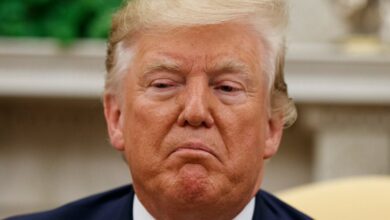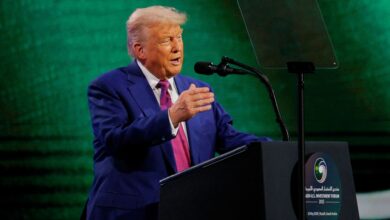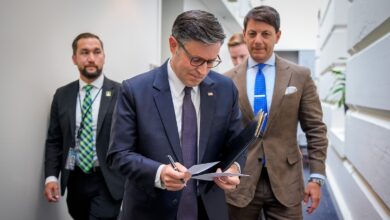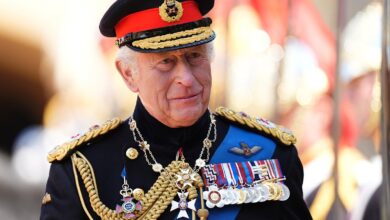Lawyer calls Trump tariffs ‘unlawful’ as they face 1st test against small businesses
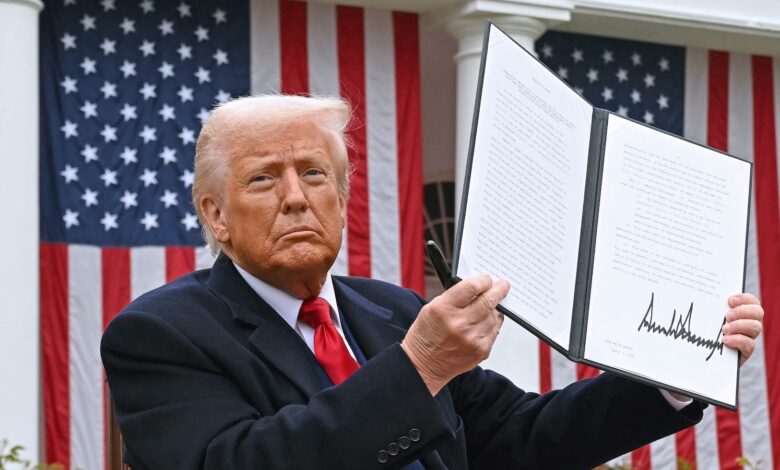
President Donald Trump’s imposition of sweeping tariffs has sparked a legal battle over the extent of executive power, with a lawyer for a group of small businesses arguing that the tariffs represent an “unprecedented and unlawful expansion” of presidential authority. The hearing at the Court of International Trade in Manhattan has brought to light the question of whether Trump’s tariffs, dubbed “Liberation Day” tariffs, are within the bounds of the law.
Representing the plaintiffs, Jeffrey Schwab of the Liberty Justice Center contended that the International Emergency Economic Powers Act does not grant Trump the unilateral authority to impose tariffs. Schwab emphasized that the trade deficits cited by Trump as an emergency have been ongoing issues without meeting the legal criteria of being brief, rare, and not continuous.
Schwab urged the court to recognize the unlawfulness of the tariffs, likening the case to a baseball umpire calling a wild pitch that doesn’t even come close to the strike zone. Despite the judges seeking a clear legal standard, Schwab maintained that the blatant overreach of executive power should be evident.
The lawsuit, filed by a coalition of small businesses including a liquor distributor, pipe company, electronics store, tackle shop, and cycling company, argues that Trump’s tariffs would cause irreparable harm by disrupting their reliance on imports from countries like China and Mexico. They labeled Trump’s actions as an “unprecedented power grab” that exceeds his constitutional authority.
In response, lawyers from the Department of Justice defended Trump’s tariffs as a necessary measure under the national emergency declared by the president. They argued that Congress grants the president authority to impose tariffs, with the invocation of a national emergency expanding Trump’s powers to address economic threats.
The legal battle over Trump’s tariffs has seen multiple lawsuits challenging the president’s authority, with the Court of International Trade now at the forefront of the debate. The panel of judges, appointed by Presidents Obama, Trump, and Reagan, will weigh the arguments presented and determine the legality of the tariffs.
The Court of International Trade, typically handling niche trade disputes, is now center stage in a high-profile case that delves into the intersection of executive power, national security, and economic policy. The outcome of the hearing will have significant implications for future presidential actions on trade matters.


